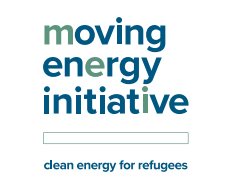Moving Energy Initiative –  The Costs of Fuelling Humanitarian Aid is a research paper provided by Chatham House for the Moving Energy Initiative (Mie), which offers the first ever assessment of energy use by humanitarian organizations. It concludes that despite the essential role of energy in humanitarian action and the UN´s stated commitment to carbon neutrality by 2020, to date there is no concerted effort to move away from fossil fuels.
The Costs of Fuelling Humanitarian Aid is a research paper provided by Chatham House for the Moving Energy Initiative (Mie), which offers the first ever assessment of energy use by humanitarian organizations. It concludes that despite the essential role of energy in humanitarian action and the UN´s stated commitment to carbon neutrality by 2020, to date there is no concerted effort to move away from fossil fuels.
Energy is essential to humanitarian action. Most refugee and internal displacement camps are in remote locations, so humanitarian agencies consume large amounts of fuel on the long-distance transport of staff, equipment, and goods such as food and water. Operations tend to rely on on-site electricity generation to power reception centres, clinics, schools, food storage, water pumping and street lighting. Peacekeeping operations face a similar situation. As humanitarian crises become more protracted and aid budgets face unprecedented scrutiny, agencies could save millions by switching from diesel and oil fuels to cleaner energy sources.
Download the research paper here.